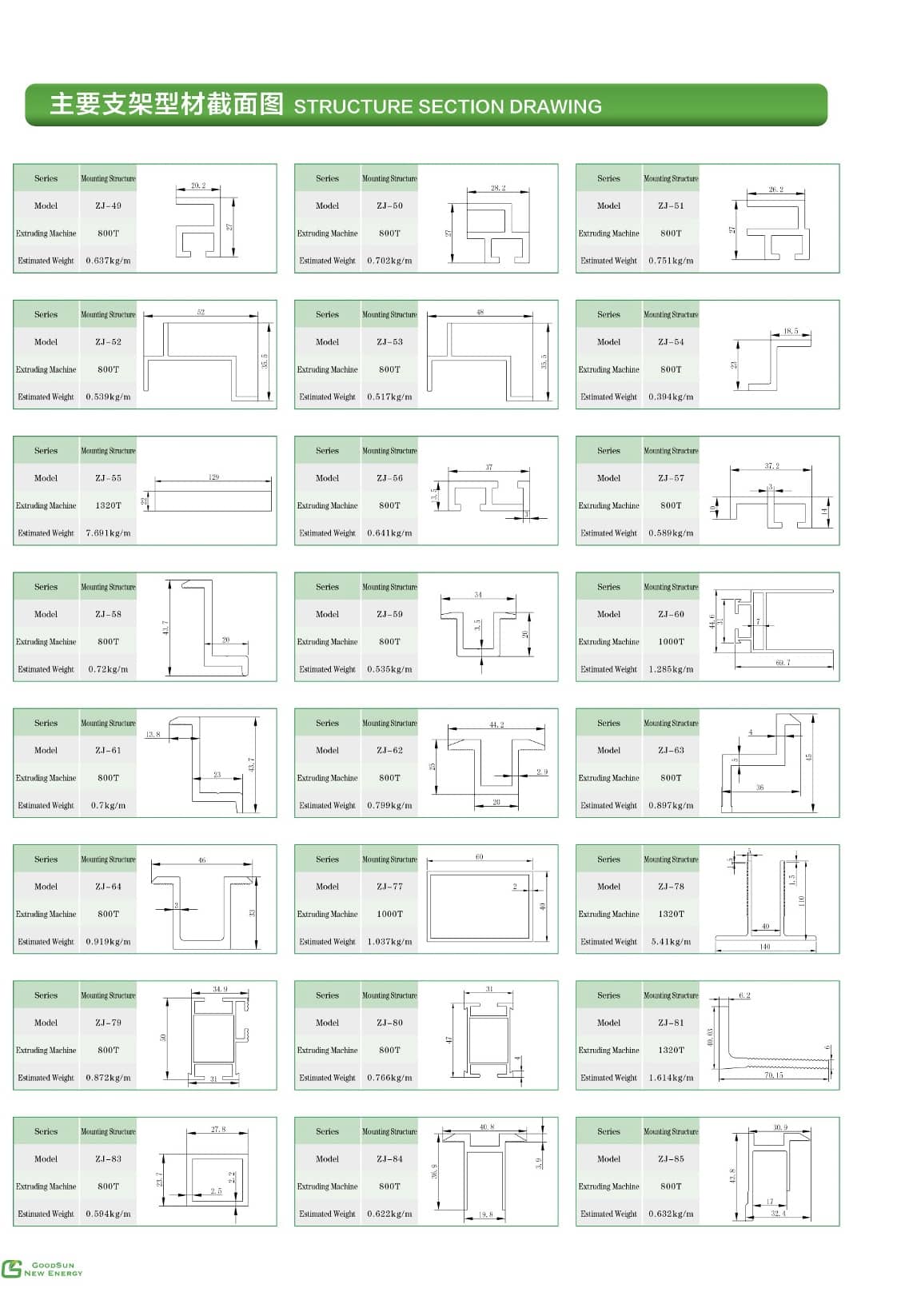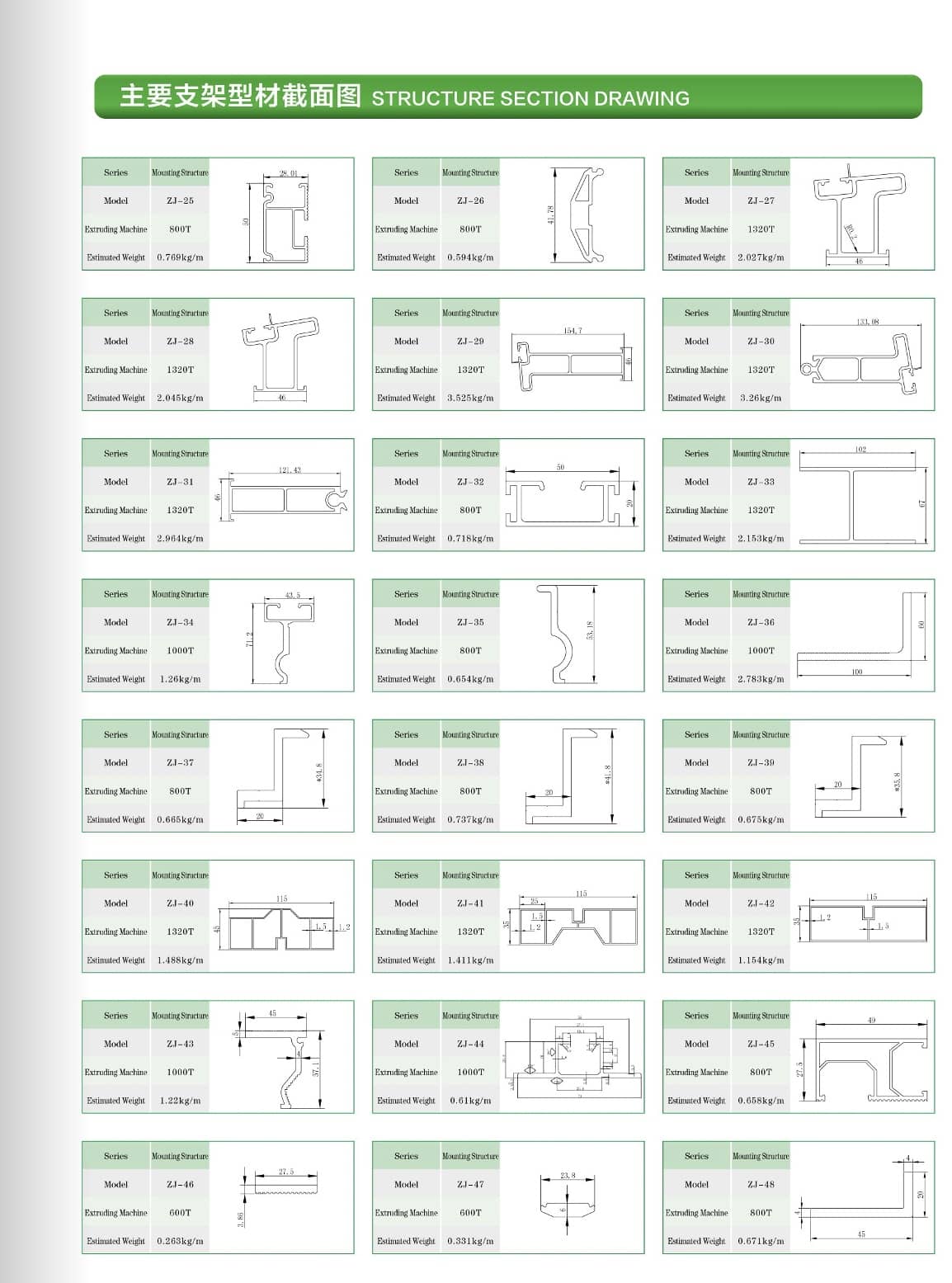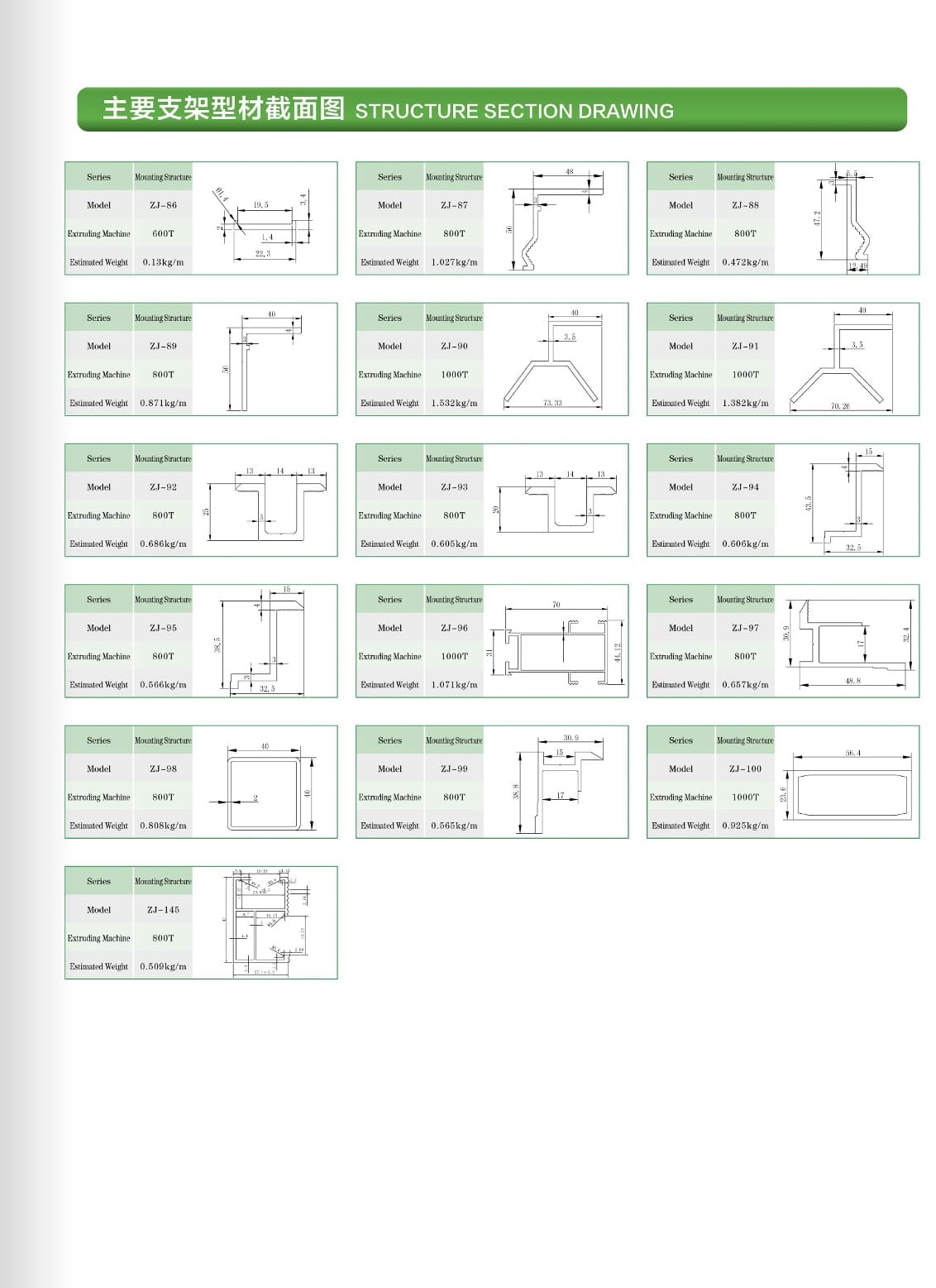Solar Aluminum Structure
Why do solar panels use aluminum frames?
The combination of an aluminum solar panel frame and aluminum mounting bracket can provide sufficient support for solar panels. To securely fix the solar panel in place. Due to the strength, durability, and resistance of the materials, most of the solar panel frames we provide are made of anodized aluminum oxide.
The main reason is:
Use aluminum frames to protect solar panel components. Aluminum frames have good conductivity and can be used as lightning protection in thunderstorm weather. Last but not least, the strength of aluminum frames is high. Stable and reliable.
Corrosion resistance:
Many surface treatments can be used on aluminum frames, such as spray-painted sun-frames, PVDF sunframes, and electrophoretic sun-frames. But most solar panel frames are anodized solar frames
Why choose the anodized aluminum frame for solar panels?
Anodized aluminum oxide is a non-conductive material that does not interrupt the normal uses.
In addition, the anodized solar frames are not affected by temperature changes and have a high heat resistance. This allows them to withstand extreme weather conditions and maintain their structural integrity over time.
Another advantage of using anodized aluminum frame is its resistance to corrosion. The anodization process creates a protective layer on the surface of the aluminum, making it less susceptible to rust and other forms of corrosion. This is crucial for solar panels, as they are often exposed to harsh outdoor elements such as rain, snow, and UV rays.
Overall, the use of aluminum frames in solar panels not only provides structural support but also adds durability and protection to the entire system. It is a cost-effective solution that ensures the longevity and reliability of solar panels in various weather conditions.
Other accessories for solar panel systems
Apart from aluminum frames, there are other important accessories that play a crucial role in the functioning and efficiency of solar panel systems. These include:
- Mounting Brackets: Similar to aluminum frames, mounting brackets provide support and stability to solar panels. They come in different materials such as steel, aluminum, or composite materials like plastic.
- Solar Inverters: Inverters convert the direct current (DC) produced by solar panels into alternating current (AC) that can be used to power household appliances and electronics.
- Wires and Cables: These conductors connect the solar panels, inverters, and batteries in the system, allowing the flow of electricity.
- Batteries: Solar panel systems can be connected to a battery bank to store excess energy for later use.
- Charge Controllers: These devices regulate the amount of voltage and current from solar panels to prevent overcharging of batteries.
- Monitoring Systems: With the help of sensors and meters, monitoring systems track the performance and efficiency of solar panel systems, providing valuable data for maintenance and optimization.
All these accessories work together to ensure the smooth functioning of solar panel systems and maximize their energy production. As technology continues to advance, new and improved accessories are constantly being developed to enhance the performance of solar panel systems even further.







 info@gsolarcn.com
info@gsolarcn.com  +86 172 7881 8518
+86 172 7881 8518  +86 135 2442 5435
+86 135 2442 5435